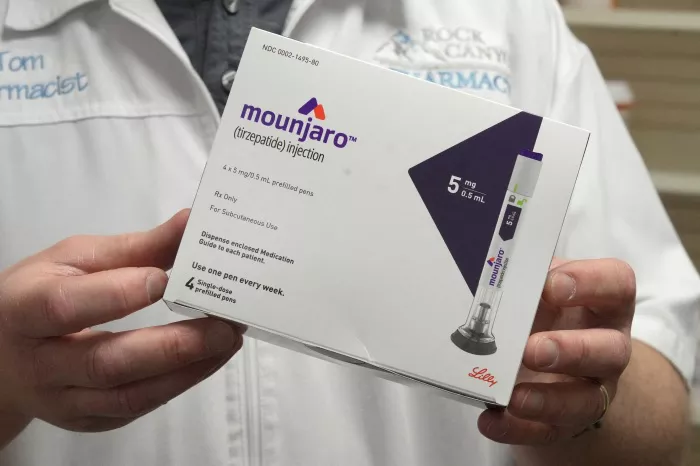Vitamin B12 is an essential nutrient that plays a vital role in many bodily functions, including the production of red blood cells and the maintenance of a healthy nervous system. Vitamin B12 deficiency can lead to a range of health problems, including anemia, fatigue, and neurological disorders. For people with severe vitamin B12 deficiency, vitamin B12 injections may be necessary to restore normal levels of the vitamin. But how long does it take for vitamin B12 injection to work? In this article, we will explore the benefits of vitamin B12 injections, the factors that affect how long it takes for them to work, and what you can expect from treatment.
The Benefits of Vitamin B12 Injection
Vitamin B12 injections are a powerful treatment for vitamin B12 deficiency. They work by delivering a high dose of vitamin B12 directly into the bloodstream, bypassing the digestive system. This is particularly important for people with malabsorption issues, such as those with pernicious anemia or gastrointestinal disorders, who may have difficulty absorbing vitamin B12 from food or supplements.
Vitamin B12 injections can provide a range of benefits, including:
Increased energy: Vitamin B12 plays a key role in the production of red blood cells, which are responsible for carrying oxygen throughout the body. By increasing the number of red blood cells, vitamin B12 injections can help improve energy levels and reduce fatigue.
Improved cognitive function: Vitamin B12 is essential for the proper functioning of the nervous system. By improving nerve function, vitamin B12 injections can help improve cognitive function and reduce the risk of neurological disorders.
Improved mood: Vitamin B12 is involved in the production of neurotransmitters, such as serotonin and dopamine, which play a key role in regulating mood. By increasing levels of these neurotransmitters, vitamin B12 injections can help improve mood and reduce the risk of depression.
Improved cardiovascular health: Vitamin B12 is involved in the metabolism of homocysteine, an amino acid that has been linked to an increased risk of cardiovascular disease. By reducing levels of homocysteine, vitamin B12 injections can help improve cardiovascular health.
Factors That Affect How Long It Takes for Vitamin B12 Injection to Work
The time it takes for vitamin B12 injection to work can vary depending on several factors, including:
Severity of deficiency: The severity of vitamin B12 deficiency can affect how long it takes for vitamin B12 injections to work. People with severe deficiency may require multiple injections over a period of weeks or months to restore normal levels of the vitamin.
Frequency of injections: The frequency of vitamin B12 injections can also affect how long it takes for them to work. Generally, injections are given once a week for the first month, followed by a maintenance dose every 4-12 weeks, depending on the individual’s needs.
Underlying health conditions: Underlying health conditions, such as pernicious anemia or gastrointestinal disorders, can affect how well the body absorbs vitamin B12. In these cases, higher doses of vitamin B12 injections may be required to achieve normal levels of the vitamin.
Age: As people age, their ability to absorb vitamin B12 from food and supplements decreases. This can lead to an increased risk of vitamin B12 deficiency and may require higher doses of vitamin B12 injections to achieve normal levels of the vitamin.
What to Expect from Treatment
If you are receiving vitamin B12 injections, here’s what you can expect from treatment:
Injection site: Vitamin B12 injections are typically given in the muscle of the upper arm or thigh. The injection site may be sore for a few days after the injection.
Frequency of injections: The frequency of vitamin B12 injections will depend on the severity of your deficiency and your individual needs. Generally, injections are given once a week for the first month, followed by a maintenance dose every 4-12 weeks.
Side effects: Side effects of vitamin B12 injections are rare but can include headache, nausea, and dizziness. If you experience any side effects, talk to your healthcare provider.
Improvement in symptoms: Improvement in symptoms, such as increased energy and improved cognitive function, may be seen within a few days or weeks of starting vitamin B12 injections. However, it may take several months to achieve normal levels of the vitamin.
Conclusion
Vitamin B12 injections are a powerful treatment for vitamin B12 deficiency, providing a range of benefits, including increased energy, improved cognitive function, improved mood, and improved cardiovascular health. The time it takes for vitamin B12 injection to work can vary depending on several factors, including the severity of deficiency, frequency of injections, underlying health conditions, and age. If you are receiving vitamin B12 injections, it’s important to follow your healthcare provider’s instructions and attend all scheduled appointments to achieve the best possible results.
[inline_related_posts title=”You Might Be Interested In” title_align=”left” style=”list” number=”6″ align=”none” ids=”5541,5538,5535″ by=”categories” orderby=”rand” order=”DESC” hide_thumb=”no” thumb_right=”no” views=”no” date=”yes” grid_columns=”2″ post_type=”” tax=””]
































